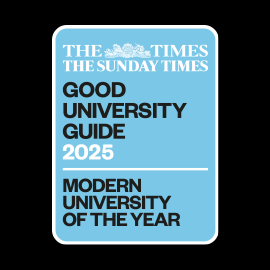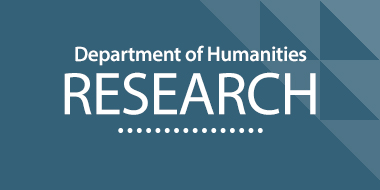-
Study
-
Quick Links
- Course Search
- Fees and Funding
- Unlock Your Potential
- Still time to Apply
- Higher and Degree Apprenticeships
- Continuing Professional Development
- Still time to apply
-
Undergraduate
- Application Guides
- UCAS Exhibitions
- Foundation Years
- School & College Outreach
- Information for Parents
-
Postgraduate
- Application Guide
- Postgraduate Research Degrees
- Flexible Learning
- Change Direction
- Register your Interest
-
-
International
International
Northumbria’s global footprint touches every continent across the world, through our global partnerships across 17 institutions in 10 countries, to our 277,000 strong alumni community and 150 recruitment partners – we prepare our students for the challenges of tomorrow. Discover more about how to join Northumbria’s global family or our partnerships.
View our Global Footprint-
Quick Links
- Course Search
- Undergraduate Study
- Postgraduate Study
- Information for Parents
- London Campus
- Northumbria Pathway
- Cost of Living
- Sign up for Information
-
International Students
- Information for Students
- International Events
- Application Guide
- Entry Requirements and Education Country Agents
- Global Offices
- English Requirements
- English Language Centre
- International student support
- Cost of Living
-
International Fees and Funding
- International Undergraduate Fees
- International Undergraduate Funding
- International Masters Fees
- International Masters Funding
- International Postgraduate Research Fees
- International Postgraduate Research Funding
-
International Partners
- Agent and Representative Network
- Global Partnerships
- Global Community
-
International Mobility
- Information for Northumbria Students
- Information for Incoming Exchange Students
-
-
Business
Business
The world is changing faster than ever before. The future is there to be won by organisations who find ways to turn today's possibilities into tomorrows competitive edge. In a connected world, collaboration can be the key to success.
More on our Business Services -
Research
Research
Northumbria is a research-rich, business-focused, professional university with a global reputation for academic quality. We conduct ground-breaking research that is responsive to the science & technology, health & well being, economic and social and arts & cultural needs for the communities
Discover more about our Research -
About Us
-
About Northumbria
- Our Strategy
- Our Staff
- Place and Partnerships
- Leadership & Governance
- Academic Departments
- University Services
- History of Northumbria
- Contact us
- Online Shop
-
-
Alumni
Alumni
Northumbria University is renowned for the calibre of its business-ready graduates. Our alumni network has over 246,000 graduates based in 178 countries worldwide in a range of sectors, our alumni are making a real impact on the world.
Our Alumni - Work For Us
What will I learn on this module?
In this module you will acquire in-depth knowledge about the Spanish late medieval period, with all of its captivating myths and influential realities. You will become critically familiar with exciting passages of universal history, including the end of the Reconquest (with the rise of the Spanish Inquisition and the expulsion of Jews and Muslims), the discovery of America, often referred to as an “encounter” of civilisations, and the development of the modern world from an Iberian perspective. You will explore the concepts of religious persecution and clash of civilisations, establishing the links between the political role of the Catholic Church and the development of a “new” continent in America from 1492. Moreover, you will gain an expert understanding of coexistence and conflict between Muslims, Jews and Christians in Spain, including the transformational cultural legacies that Europe and the West owe to Al-Andalus and Sefarad (Muslim and Jewish Spain). You will also gain a nuanced understanding of imperial dynamics between indigenous civilisations, including the Inca and the Azteca, and European settlers in the New World. You will learn about Spain’s Christian and Imperial mandates by using a wide range of translated primary sources, which will include, amongst many others, the Lead Books of Granada, Hernán Cortés’s Letters from Mexico, and Álvar Núnez’s account of his ten years journey from Florida to California, Castaways. You will also be able to evaluate the role of propaganda, from a comparative history perspective, when assessing the key events that took place before and after 1492, and how these shaped the course of modern history.
How will I learn on this module?
You will attend interactive and engaging lectures (1.5 hours per week), seminars (1.5 hours per week) and academic tutorials. In addition to written, historical primary and secondary sources, paintings, literary materials, and architecture will be used to illustrate the periods of history studied. As a result, you will gain a more vivid understanding of the events, mentalities, societies, and cultures discussed. You will also be required to undertake directed and independent study, and you will be given weekly preparation guidelines to actively engage in informed discussions in seminar groups. All materials used in the module will be available to you on Blackboard. Summative assessment matches your learning against the learning outcomes for the module.
How will I be supported academically on this module?
Your academic development will be supported through engagement with your peers, academic tutor, and programme leaders. Academic support is provided through group/individual tutorials which allow specific issues to be addressed and to promote progress in academic development. The module tutor will be accessible within publicised office hours, via Teams, and via email. Your peers will provide you will a collaborative learning environment, and your programme leader will guide you through the requirements and expectations of your course. You will also be supported through individual engagement with the academic literature, lectures, and resources available on Blackboard. You will benefit from attending essay preparation tutorials with the module leader. Formative feedback will be on-going throughout seminar activities and through assessment tasks.
What will I be expected to read on this module?
All modules at Northumbria include a range of reading materials that students are expected to engage with. Online reading lists (provided after enrolment) give you access to your reading material for your modules. The Library works in partnership with your module tutors to ensure you have access to the material that you need.
What will I be expected to achieve?
Knowledge & Understanding:
1. Demonstrate a critical engagement with the concepts of religious persecution and clash of civilisations
2. Develop an understanding of the political, ideological and social contexts in which the featured historical events evolved
3. Establish a foundational knowledge of the links between Christianity, empire, and the development of a “new” world.
Intellectual / Professional skills & abilities:
4. Critically engage with historical theories and methodologies to investigate the Spanish speaking world, directly relevant to 600 million people world-wide, and with a growing strategic importance
Personal Values Attributes (Global / Cultural awareness, Ethics, Curiosity) (PVA):
5. You will develop an expert understanding of global ethical issues (empire, clash of civilisations, indigenous cultures, expansion and acculturation, religious coexistence and conflict, amongst many others).
How will I be assessed?
The module is summatively assessed by:
1) a 2,000-word essay (40%)
2) a 1,500 word textual commentary of a primary source passage (30%)
3) a presentation on a relevant topic followed by a conversation with the module tutor (30%)
The three assessments will test different skills. Coursework will test your research skills, depth of academic engagement, and your ability to understand and illustrate key concepts. The primary source commentary will encourage you to contextualise a primary source, and the presentation and discussion will allow you to present your ideas in a more dynamic format. MLOs 1-5
Formative assessment will be an ongoing feature of the module. You will be encouraged to deliver informal, short presentations during some of the seminar hours. You will present your preliminary essay and presentation ideas to the class in a friendly and constructive environment, in order to receive feedback from both your colleagues and your lecturer. Formative feedback will be directly relevant to your assessments. You will receive informal comments during debates, and will benefit from individual tutorials.
Pre-requisite(s)
N/A
Co-requisite(s)
N/A
Module abstract
This module begins by exploring religious conflict and coexistence in Al Andalus (Muslim Iberia) and in the Christian Kingdoms of Spain during the late medieval period. Between 711 and 1492, Muslims, Jews and Christians lived alongside each other in the Iberian Peninsula. Coexistence and collaboration flourished in certain contexts, such as the Ummayad Caliphate of Córdoba, or the School of Translators of Toledo, under the sponsorship of the Christian King of Castile Alfonso X ‘The Wise’. Conflict, both social and military, also existed, as illustrated by the narrative of the long Reconquest of Spain undertaken by the Christians, and symbolically culminated on 2 January 1492 with the Fall of Granada and the establishment of the Catholic Monarchy, and its eventual global empire, in the breathtaking Alhambra Palace. You will explore the concepts of religious persecution and clash of civilisations, establishing the links between the political role of the Catholic Church and the development of a New World, America, from 12 October 1492. Europe, and ‘the West’, were shaped by the transformational cultural legacies, practical and philosophical, inspired by the three religions, and by a surprisingly diverse number of hybrid identities, such as Moriscos, Conversos, Mozarabs, and Mudejares. These would be the main targets of the investigations of the Inquisition, an institution that we will demystify in its chronological and cultural contexts.
In the second half of this module, you will also gain a nuanced understanding of imperial dynamics between the indigenous civilisations of America, including the Inca and the Azteca, and European settlers in the New World. You will learn about Spain’s imperial endeavour, about the local alliances established by the conquistadores, and about the contradictions emanating from the frictions between Spain’s Christian mandate and the realities of colonialism. We will be using a wide range of translated primary sources, which will include, amongst many others: the Lead Books of Granada, a 16th century forgery proposing a hybridisation of Christianity and Islam; Hernán Cortés’s Letters from Mexico, in which Cortés tries to persuade Carlos I of the rightfulness of his mission to dethrone Aztec Emperor Moctezuma; and Álvar Núñez’s chronicle of his gruelling ten years journey from Florida to California, Castaways – an account by the first European to walk across the length of today’s America’s West. His reflections, and those of Bartolomé de las Casas or Francisco de Vitoria, were partially indebted to Spain’s diverse building blocks, and they contributed to developing modern tenets of civilisation such as international law or indigenous rights.
Course info
UCAS Code T700
Credits 20
Level of Study Undergraduate
Mode of Study 3 years Full Time or 4 years with a placement (sandwich)/study abroad
Department Humanities
Location City Campus, Northumbria University
City Newcastle
Start September 2025 or September 2026
All information is accurate at the time of sharing.
Full time Courses are primarily delivered via on-campus face to face learning but could include elements of online learning. Most courses run as planned and as promoted on our website and via our marketing materials, but if there are any substantial changes (as determined by the Competition and Markets Authority) to a course or there is the potential that course may be withdrawn, we will notify all affected applicants as soon as possible with advice and guidance regarding their options. It is also important to be aware that optional modules listed on course pages may be subject to change depending on uptake numbers each year.
Contact time is subject to increase or decrease in line with possible restrictions imposed by the government or the University in the interest of maintaining the health and safety and wellbeing of students, staff, and visitors if this is deemed necessary in future.
Useful Links
Find out about our distinctive approach at
www.northumbria.ac.uk/exp
Admissions Terms and Conditions
northumbria.ac.uk/terms
Fees and Funding
northumbria.ac.uk/fees
Admissions Policy
northumbria.ac.uk/adpolicy
Admissions Complaints Policy
northumbria.ac.uk/complaints












